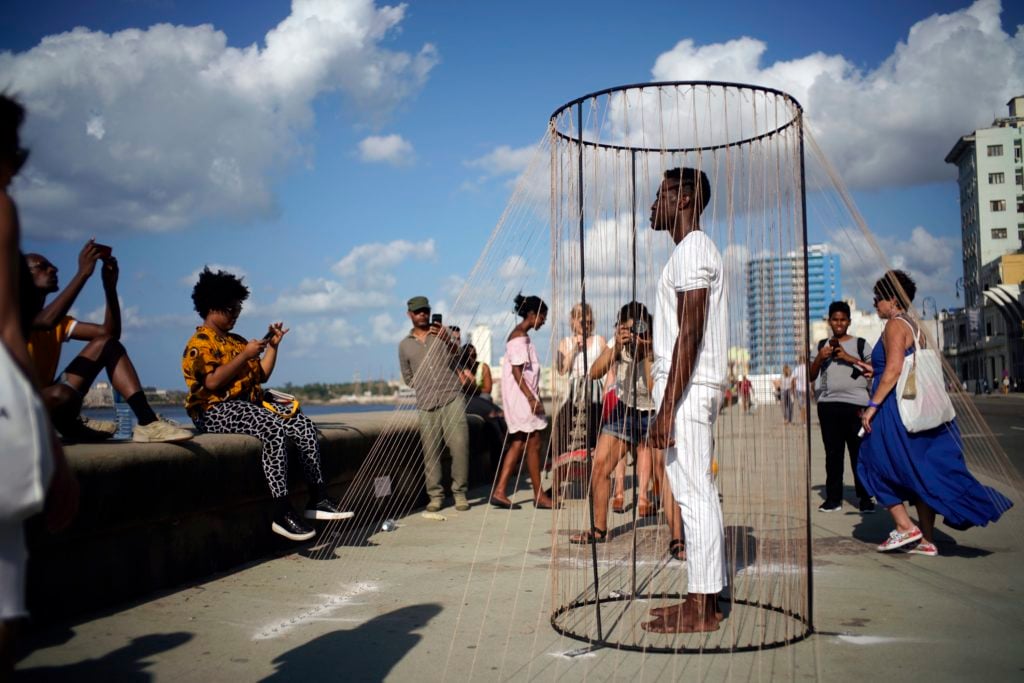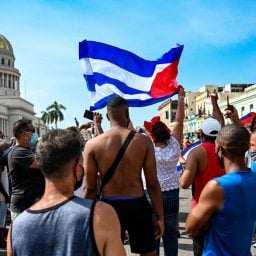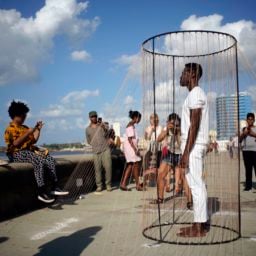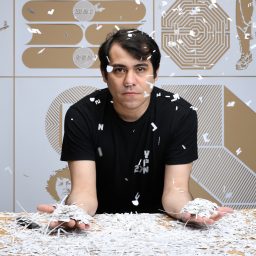Hundreds of artists and cultural workers are boycotting the Havana Biennial to protest what they describe as injustices committed by the Cuban government against its citizens, including harassment and wrongful imprisonment.
While a lengthy list of Cuban and international artists and experts have signed an open letter that was posted on e-flux, several high-profile names have already withdrawn from the event, including Swiss artist Ursula Biemann and French critic Nicolas Bourriaud. At least five in total have withdrawn according to Hyperallergic, including the artists Nathalie Anguezomo Mba Bikoro and Aimee Joaristi Argüelles, and curator Maria Belén Saez de Ibarra.
“We are Cuban cultural workers who have asked our colleagues NOT to participate in the 14th Havana Biennial. Some might find it surprising or even shocking that we would reject the most important art event in our country—an event that has given so many Cuban artists the opportunity to share their art with the rest of the world,” the letter states.
Among the dozens of signatures appearing on the letter are artists Tania Bruguera and Coco Fusco, as well as Cecilia Fajardo-Hill, a British/Venezuelan art historian and curator of modern and contemporary art.
Bruguera did not immediately respond to a request for comment, but she told Hyperallergic that a boycott was the only option. The artist recently agreed to leave the country in exchange for the release of 25 prisoners. “I think it’s important not to participate because the Cuban people rose up on July 11 to demand their rights, and they have been thrown in prison and threatened,” Bruguera said.
Fusco told Artnet News in an email: “The Cuban Minister of Culture Alpidio Alonso has alleged that the #noalabienaldelahabana campaign is paying Cubans to participate in a boycott. His accusation is unfounded. The decision not to participate is an ethical one and a personal one. We have no power to coerce anyone. On the other hand, the Cuban government does have the power to intimidate its citizens, to punish them unlawfully for expressing their opinions and reward those that cooperate with the state with a host of privileges and protections. The Minister’s wild allegations are part of a disinformation campaign orchestrated by Cuban state security.”
Alonso could not immediately be reached for comment.
According to posts on Bruguera and Fusco’s social media accounts, both Biemann and Bourriaud have also said no to the Havana Biennial, but their names have not yet been removed the official line-up. Biennial organisers did not immediately respond to Artnet News’s request for comment.
The open letter continues: “We say NO to participating in the 14th Havana Biennial because of the injustices being committed by the Cuban government against Cuban cultural workers, and against Cuban citizens who seek to exercise their constitutional rights.”
It also states that Cuban artists have been imprisoned for months, with dozens of cultural workers under house arrest and another 1,000 people arrested at mass protests that took place in July. An estimated 500 individuals are still in jail, the letter states.
The signatories said they have exhausted other means to help free colleagues, including writing letters and circulating petitions, as well as staged actions such as fasting and prayers.
According to the letter: “The institutions and functionaries that organize the 14th Havana Biennial are the same ones that have refused to listen to us,” and instead have “condoned and participated in the violence.”
Among the international supporters who have signed the open letter are writer Juno Díaz, artists Heman Chong, Sam Durant, Pablo Helguera, and Carlos Motta, former museum director Helen Molesworth, former Queens Museum director Laura Raicovich, and former museum director Olga Viso.









